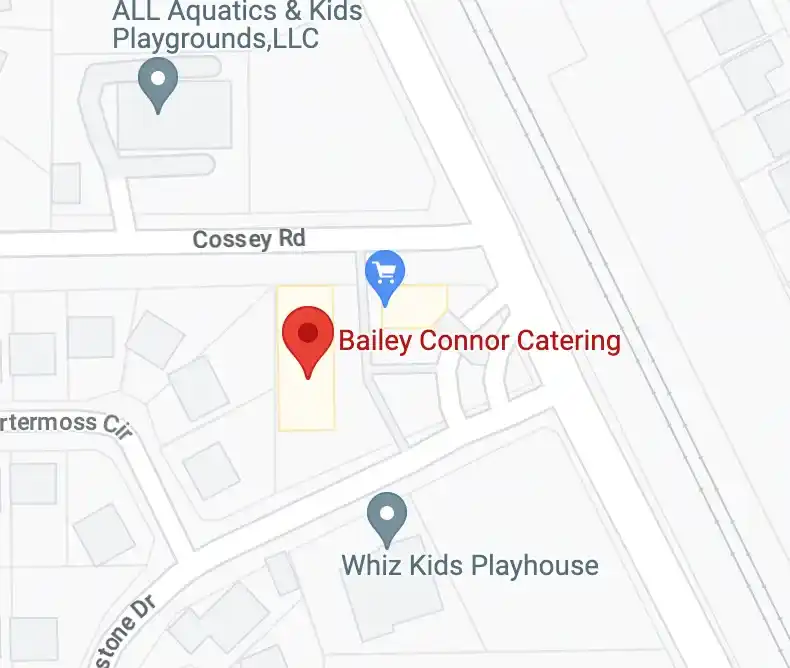The service provided by regular event catering includes a variety of menu selections tailored to the mood of the event, contrasting with the corporate event catering which is generally more formal and offers polished, personalized menus. The cost and logistical planning associated with corporate catering are usually higher due to its commercial nature. Staff expertise significantly influences the quality of service in corporate catering. By understanding the key differences in planning and budgeting between the two, the influence of company culture can also be better appreciated. Continue reading for an in-depth analysis of these distinctions.
Key Takeaways
- Regular occasions cater to a multitude of events, whereas corporate events predominantly need specific menus and services that correspond to the business environment.
- More extensive menu options are provided by corporate catering, permitting greater customization, inclusive of dietary restrictions.
- A superior level of proficiency is typically required of the catering team for corporate events, owing to the business backdrop and the necessity to represent brand values.
- Corporate catering typically incurs higher costs, given its specialized nature, food quality, and professional service requirements.
- While the objective of both types is to improve the guest experience, corporate catering also highlights consistency, diversity in dietary needs, and congruence with the corporate culture.
Defining Regular Event Catering
In order to fully comprehend regular event catering, let’s first establish its definition. Questions may arise regarding the specific events that are included in this category, as well as the standard catering services that are usually provided. We will further elaborate on these aspects, to provide a more comprehensive understanding of this segment of the catering industry.
Types of Regular Events
In the realm of regular event catering, there are several distinct categories, each presenting their own unique set of requirements and expectations. One common category is social events, often characterized by a more relaxed atmosphere and a broad variety of food options. The logistical planning required for such large-scale events is complex.
Corporate meetings represent another frequent type of event that necessitates catering. Such events are typically more formal, necessitating meticulous planning and sophisticated menu options. Birthday parties, as another example, introduce an additional dimension to the landscape of event catering. These events often require imaginative, unique, and custom menus that reflect the tastes and preferences of the person being celebrated. Each category presents its own set of challenges, ensuring that every event offers a distinct catering experience.
Common Catering Services for Regular Events
Having examined the diverse types of regular events, we now turn our attention to the prevalent catering services that make these occasions possible. Catering firms provide a range of services, each tailored to satisfy the distinct requirements of your event. For example, social event catering services concentrate on delivering a menu that aligns with the theme and ambiance of your gathering. A skilled caterer is responsible for creating catering menus that not only cater to taste preferences, but also contribute to the overall experience. Whether it is a small family assembly or a large community celebration, a catering service can improve your event, guaranteeing your guests are adequately nourished and your event is unforgettable. Make a prudent selection, and let the power of food enrich your event.
Defining Corporate Catering
Let us now define the concept of corporate catering. This term encompasses more than just providing sandwiches for board meetings. There are several varieties of corporate events that necessitate catering services. This discussion will entail an analysis of these types of events, along with an overview of the frequently offered catering services tailored for such occasions.
Types of Corporate Events
In the corporate catering sector, one encounters a broad spectrum of event types, each presenting its unique demands and expectations. For example, corporate event catering services in Houston may be entrusted with managing a range of events from large-scale product launches to smaller, more exclusive executive retreats. Each event type necessitates a distinct approach from the catering companies in Houston.
A product launch may call for a more lavish menu to captivate potential clients, while a training seminar might necessitate a simple, yet nutritious selection to maintain attendee concentration. It falls to the professionals in catering for corporate events to accommodate these diverse needs, crafting corporate catering menus that correspond with the unique requirements of each event. Comprehension of these corporate catering types is crucial to mastering the terrain of the industry.
Common Catering Services for Corporate Events
The planning process for a corporate event requires a comprehensive understanding of the various catering services available as it can significantly influence the event’s outcome. The task of menu planning for such events is of utmost importance in corporate catering. The corporate caterer must possess proficiency in designing a menu that aligns with the event’s ambiance and the guests’ dietary preferences.
The style of service in corporate catering can range from buffet style to sit-down dinners, which is contingent upon the type of event. A corporate catering menu can encompass a wide range of options, from traditional comfort dishes to refined gourmet food. Frequently, catering services for corporate events incorporate beverage services, event set up and tear down, as well as on-site food preparation. Thus, the choice of the appropriate caterer can contribute to making your corporate event an unforgettable experience.
Key Differences in Menu Planning
The process of menu planning has distinct differences when comparing event and corporate catering. The importance of customization and variety varies according to each context. Furthermore, the approach to accommodating dietary restrictions and preferences also varies.
Customization and Variety
A significant distinction in menu planning between standard event catering and corporate catering is the degree of customization and diversity available. In conventional event catering, clients are typically provided with predetermined menus. These catering choices lack flexibility and, even though the catering style may differ, the variation in catering menus is primarily based on the type of cuisine.
Conversely, corporate catering offers a broader array of menu choices. There is no obligation to select from a prearranged menu, allowing for customization according to the event’s occasion, preferences, or theme. This distinction between event and corporate catering positions the latter as an adaptable option for an array of corporate functions.
Dietary Restrictions and Preferences
In addition to the versatility of menu options, corporate catering excels in accommodating specific dietary restrictions and preferences. Each catering company excels in different areas, but when it comes to dietary considerations, corporate catering often surpasses other catering services. What is the reason for this? Corporate catering professionals recognize the significance of varied menu selections and meticulous food preparation. They have honed their skills in catering to a wide range of dietary needs, from vegan to gluten-free individuals. Whether an employee has a shellfish allergy or a CEO suffers from lactose intolerance, corporate catering can meet these requirements seamlessly. Therefore, when organizing your next significant event, bear in mind that corporate catering doesn’t merely supply food – it provides a personalized culinary experience.
Service Style and Presentation
We now turn our attention to the subject of service style and presentation. It is crucial to clarify whether the environment is formal or informal and what the requirements for staff and service are. These aspects are fundamental in differentiating between event and corporate catering.
Formal vs. Informal Settings
In the realm of catering, the style of service and presentation can dramatically transform based on the formality or informality of the setting. This differentiation is often exhibited in the contrast between wedding catering and corporate catering. The nature of the catering event affects multiple aspects, ranging from the choice of menu to the decor, each having its distinct prerequisites. Corporate catering serves as an effective method of improving the guest experience at corporate events and is typically overseen by experienced corporate catering concierges. They ensure that the style of service is in sync with the event’s theme, irrespective of it being a formal black-tie gala or a relaxed business lunch. It is key to remember that the choice between formal and informal settings does not imply the superiority of one over the other, rather it is a matter of what aligns best with the purpose and audience of your event.
Staff and Service Requirements
Transitioning from the aspect of location to personnel, the manner of service and its presentation hinges significantly on the competence and professionalism embodied by your catering team. In the realm of event catering, staffing requirements could exhibit a certain degree of flexibility, as the goal is often to cultivate a casual ambiance. In contrast, corporate catering necessitates a team that is fully capable of managing a commercial setting, with a strong emphasis on fulfilling all service prerequisites to ensure the event’s seamless execution. It is crucial that your team exhibits proficiency across all roles, from serving staff to chefs, as each position holds significant importance in the overall success of the event. The style of service should be smooth and efficient, while the presentation needs to be of high quality, accurately reflecting the corporate brand and its principles. Comprehending these subtle distinctions between event and corporate catering will empower you to customize your services to meet the unique demands of your customers.
Logistics and Planning
We now turn our attention towards the intricacies of logistics and planning within the sphere of event and corporate catering. This discourse will focus on the significance of both scheduling and timing, and how these elements can differ significantly across various events and corporate gatherings. Further, we will touch upon the implications of venue selection, and how the choice of site can influence the catering requirements and implementation.
Scheduling and Timing
In the orchestration of your function or corporate catering, a meticulous attention to detail, particularly in relation to scheduling and timing, is of paramount importance. This factor is more pronounced in a business gathering where there could be day-long seminars requiring varied catering schedules. In the sphere of event catering, ensuring that the food is prepared at the right moment is an integral part of smooth operations. The task involves more than just the creation of appetizing meals, it also requires providing an impeccable catering service. Whether it’s a formal dinner or a buffet, it is critical that meals are served punctually to prevent interruptions. Bear in mind, the secret to a fruitful event lies in thorough planning and unwavering adherence to the timetable. With correct timing and scheduling, the event is likely to be well-received by the participants.
Venue Considerations
Consideration of the venue is a critical aspect of successful event and corporate catering planning. A comprehensive understanding of the venue is essential for those working within the catering sector. The selected venue sets the overall ambience for the event, regardless if it is a business meeting or a birthday celebration. In the context of event catering, the venue’s dimensions, geographical position, and design can significantly impact your choice of food and beverages. For varied events such as weddings or conferences, these factors can differ substantially. Prior to organizing your forthcoming event, it is critical to comprehend the impact of the venue on your catering decisions. Armed with this knowledge, one can facilitate a smooth event that leaves an enduring impression.
Budget and Cost Considerations
In the field of event and corporate catering, understanding the variability of budget allocation is crucial. Economical solutions have a significant influence on your catering selections. This discussion is focused on how one can optimally utilize the budget and make financially efficient decisions.
Budget Allocation
Prudent budget management can significantly influence your preference between event and corporate catering. When planning for event catering, it is important to consider the number of attendees, the variety of food you wish to serve, and the expenses associated with hiring a caterer. With regards to office lunches, there might be more budget flexibility. However, one must be aware that corporate catering tends to be pricier due to the intricacy of the menus and the high standard of service. The price per person for food and beverages is typically higher. Additional services that you might need should also be accounted for in the budget. A well-structured budget helps you make informed choices, guaranteeing the best return on your investment without sacrificing quality and guest satisfaction.
Cost-Effective Solutions
We provide an extensive range of economically efficient strategies designed to handle your catering requirements without causing undue financial strain. Whether the need is for a simple office lunch, full-day events, or client entertainment, there are a variety of options to deliver high-quality catering that remains within budget constraints. These strategies do more than just satiate your team’s hunger; they also contribute to significant time and money savings.
It would be prudent to examine various catering packages that align with your specific requirements and financial limitations. Some catering services provide special offers for large-scale orders or regular services which may prove beneficial for recurring events. Implementing these economically efficient strategies can fulfill your catering needs without unnecessary expenditure.
Enhancing the Guest Experience
We now transition our attention to the ways in which the guest experience can be improved. Key areas of focus include entertainment and engagement, as well as feedback and ongoing improvements. These elements are highly influential in the context of both event and corporate catering scenarios.
Entertainment and Engagement
Improving the experience of your guests at a catering event involves significant attention to entertainment and engagement elements, regardless of the nature of the event. Be it a relaxed gathering or a formal corporate affair, such as all-day meetings or festive celebrations, engaging activities are key to successful social event catering.
By integrating interactive activities, guests can fully participate in and appreciate every moment of the event. This approach not only improves their satisfaction levels but also keeps the event’s energy levels consistently high. There is an unlimited array of options for creating an engaging atmosphere, ranging from live music performances to photo booths.
As the event progresses, the enjoyment and engagement of your guests should not wane but rather remain steady. A truly successful event is one where your guests relish not only the food but also the overall experience.
Feedback and Continuous Improvement
In order to ensure that your event or corporate catering consistently surpasses expectations, it is paramount to collect feedback and concentrate on ongoing improvement. When contemplating catering, all facets must be accounted for, including the experience of the guest. Regular feedback enables you to cover all variables, from the caliber of the food to service standards.
When collaborating with us, we will strive to fortify relationships with your guests. We make individuals feel appreciated, cognizant that their opinions are valued. This not only improves the guest experience but also augments your reputation. Remember, ongoing improvement is a journey, not a one-off endeavor. Utilizing feedback is central to accomplishing this objective and refining your catering strategy.
Conclusion
In closing, it becomes apparent that comprehending the fundamental differences between event and corporate catering is crucial for your decision-making process for your forthcoming event. Be it planning for wedding catering or arranging food for staff, the four types of catering have unique characteristics that can significantly affect the overall experience.
A regular office lunch can notably alter the staff’s perception of your organization. If the aim is to cultivate a positive company culture, prioritizing high-quality corporate catering is advised. Ignoring this aspect could result in increased employee turnover.
The preparation and service methods of meals also vary substantially between event and corporate catering. Event catering, such as wedding catering, strives to create a memorable experience with a unique, one-time menu. Corporate catering, in contrast, aims to deliver consistent, top-quality meals that meet the diverse dietary needs and preferences of the staff.
At Bailey Connor Catering, we understand the nuances of both event and corporate catering. Our expertise ensures that whether you're planning a wedding or a business event, we provide exceptional service and delicious food tailored to your needs. Trust Bailey Connor Catering to make your event a success and leave a lasting impression on your guests.






